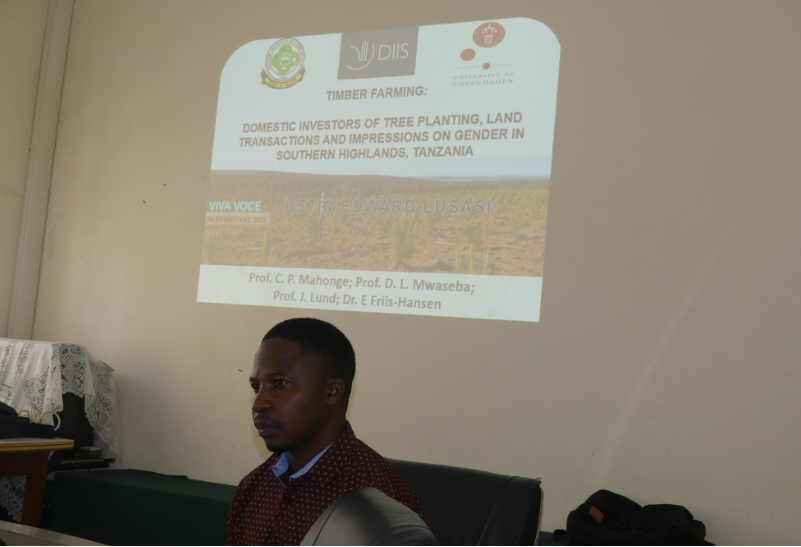TIMBER FARMING
DOMESTIC INVESTORS OF TREE PLANTING, LAND TRANSACTIONS AND IMPRESSIONS ON GENDER IN SOUTHERN HIGHLANDS, TANZANIA
Following the urbanization growth, the regional demand for construction materials i.e. poles and timbers from Eucalyptus and Pinus tree species piled up, exceeding the capacity of supply from Sao Hill plantations, by then the only largest supplier. To cover the deficit, the construction industries from Tanzania, Kenya and Uganda resorted to few existing private woodlots most of which belonged to smallholders. Early sells by smallholders were at high prices, which connoted tree planting a lucrative business. Thus many people, companies and institutions resorted to purchase land for tree planting, the surge that influenced Timber rush research. This study analysed empirical research on transactions of village land for planting timber trees hence timber farming and its implications to members of local communities of the Southern Highlands of Tanzania.
I started the research on land transactions for tree planting in October 2017, the research that took me to three regions; Iringa, Njombe and Ruvuma. In Iringa I did my research in Mufindi and Kilolo Districts. In Njombe I went to Njombe, Wanging’ombe and Makete Districts while in Ruvuma I went to Madaba of Songea District. As for academic outputs, the research has come up with five main typologies of domestic investors, motives for land transactions among smallholders and implications of land transactions to involved households of Southern highlands Tanzania.
